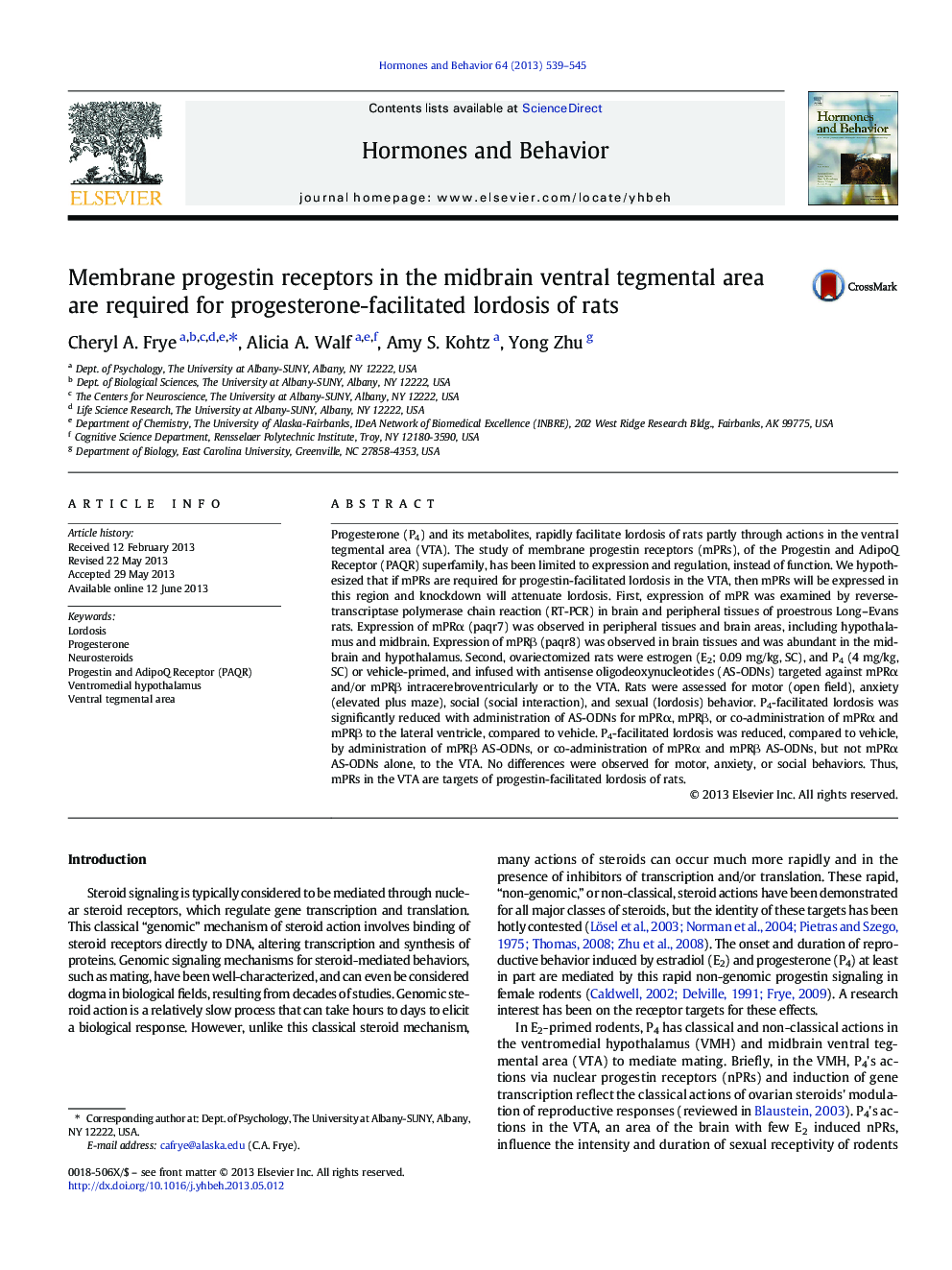| Article ID | Journal | Published Year | Pages | File Type |
|---|---|---|---|---|
| 10301103 | Hormones and Behavior | 2013 | 7 Pages |
Abstract
Progesterone (P4) and its metabolites, rapidly facilitate lordosis of rats partly through actions in the ventral tegmental area (VTA). The study of membrane progestin receptors (mPRs), of the Progestin and AdipoQ Receptor (PAQR) superfamily, has been limited to expression and regulation, instead of function. We hypothesized that if mPRs are required for progestin-facilitated lordosis in the VTA, then mPRs will be expressed in this region and knockdown will attenuate lordosis. First, expression of mPR was examined by reverse-transcriptase polymerase chain reaction (RT-PCR) in brain and peripheral tissues of proestrous Long-Evans rats. Expression of mPRα (paqr7) was observed in peripheral tissues and brain areas, including hypothalamus and midbrain. Expression of mPRβ (paqr8) was observed in brain tissues and was abundant in the midbrain and hypothalamus. Second, ovariectomized rats were estrogen (E2; 0.09 mg/kg, SC), and P4 (4 mg/kg, SC) or vehicle-primed, and infused with antisense oligodeoxynucleotides (AS-ODNs) targeted against mPRα and/or mPRβ intracerebroventricularly or to the VTA. Rats were assessed for motor (open field), anxiety (elevated plus maze), social (social interaction), and sexual (lordosis) behavior. P4-facilitated lordosis was significantly reduced with administration of AS-ODNs for mPRα, mPRβ, or co-administration of mPRα and mPRβ to the lateral ventricle, compared to vehicle. P4-facilitated lordosis was reduced, compared to vehicle, by administration of mPRβ AS-ODNs, or co-administration of mPRα and mPRβ AS-ODNs, but not mPRα AS-ODNs alone, to the VTA. No differences were observed for motor, anxiety, or social behaviors. Thus, mPRs in the VTA are targets of progestin-facilitated lordosis of rats.
Related Topics
Life Sciences
Biochemistry, Genetics and Molecular Biology
Endocrinology
Authors
Cheryl A. Frye, Alicia A. Walf, Amy S. Kohtz, Yong Zhu,
